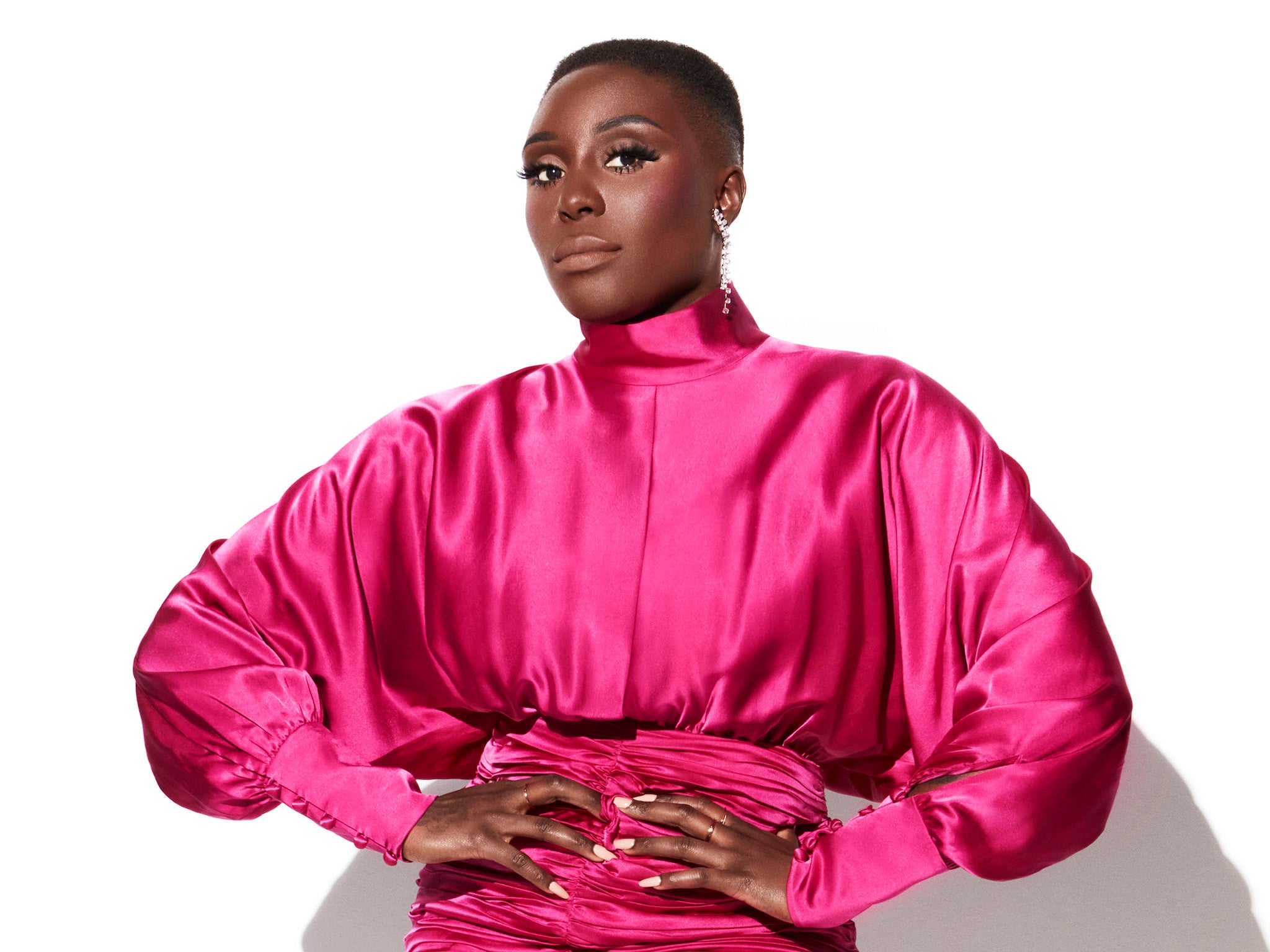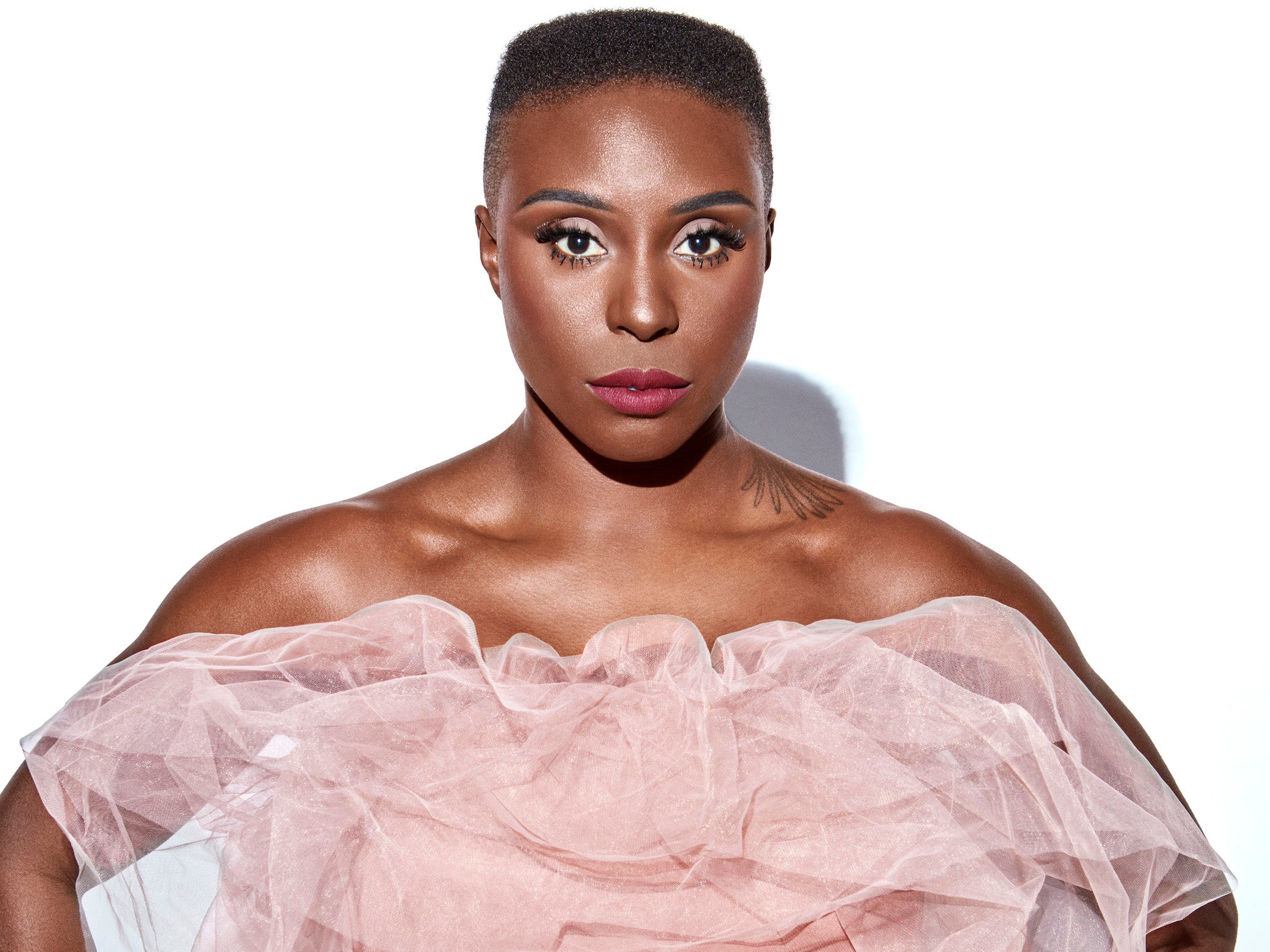Laura Mvula: ‘Black female artists? You’re at the bottom of the food chain’
The singer had awards, critical acclaim and a fan in Prince but her world was shaken when Sony dropped her without explanation. Four years later, she talks to Annabel Nugent about what happened, coming to terms with her panic attacks and making a triumphant disco album


Your support helps us to tell the story
From reproductive rights to climate change to Big Tech, The Independent is on the ground when the story is developing. Whether it's investigating the financials of Elon Musk's pro-Trump PAC or producing our latest documentary, 'The A Word', which shines a light on the American women fighting for reproductive rights, we know how important it is to parse out the facts from the messaging.
At such a critical moment in US history, we need reporters on the ground. Your donation allows us to keep sending journalists to speak to both sides of the story.
The Independent is trusted by Americans across the entire political spectrum. And unlike many other quality news outlets, we choose not to lock Americans out of our reporting and analysis with paywalls. We believe quality journalism should be available to everyone, paid for by those who can afford it.
Your support makes all the difference.Laura Mvula is still bitter. “I’m only human,” she shrugs. It’s been three years since Sony dumped her over email, and she hasn’t heard anything from the label since. “No-thing, not a drop,” the singer continues, enunciating every syllable so the “p” makes a pop between her lips. “I’d love to sit down with these cats.”
It didn’t make sense. Mvula’s ability to alchemise elements of classical, gospel and jazz on her 2013 debut Sing to The Moon stunned critics. “Green Garden”, a lush elegy to her childhood home in Birmingham, raked in nearly 15 million streams on Spotify. Life was good. She had earned Brit, Mercury, BET and Ivor Novello nominations. She’d won a Mobo and an Urban Music award. Prince and Nile Rodgers were fans. And with the release of The Dreaming Room three years later, Mvula proved she wasn’t a flash in the pan: the singer’s second album was met with more rapturous reviews and another Mercury nod. Then the label broke it off, with a perfunctory message in which the most personal thing about it was her name. “The sting is still there,” says Mvula four years later.
The 35-year-old has other things on her mind now – namely the release of her third album. The Eighties-indebted Pink Noise, her first record in five years, is out on Friday 2 July. Speaking over Zoom from her flat in Clapton, Mvula is wearing no make-up other than a fluffy canopy of lashes, which are offset by the pyramid-sharp cheekbones below them.
The new record, a deliciously disco number, cannonballs into pop after her previous work tested the waters. “Safe Passage” is the song that cracks it all open. It’s an irresistible throwback, anchored by Eighties-style martial drums and growling synths. Several of the new tracks are framed as break-up stories, loaded with lyrics like: “Another blow to the ego/ A victim of conditional love”. But mostly, Pink Noise feels like a broader affirmation on finding peace and holding on to it.
Once we get into it, it becomes clear that the album’s dance-ready mood is the result of a difficult time. “Me, myself and I went through some s**t,” she says, sucking in a sharp inhale. “When I realised I wanted to make a record but didn’t have any ideas, I beat myself up about that.” Eventually she found her way in: streamlining. “No more lush harmonies. Just rhythm and bass. Bass and rhythm,” she says.
Mvula knows it’s a bold move for an artist whose appeal was fine-tuned maximalism. Choral, orchestral and rhythmic arrangements had become her calling card and the decision to depart from that prompted self-doubt. She remembers the daily dialogue she would have with herself: “People don’t see me as someone that makes fast, danceable music. Maybe people are right. Or maybe they don’t really know me. What do I want? I don’t know what I want.”
Mvula isn’t the first to take on disco in a new release. She’s not even the first to do it this month. Others have folded in all the right ingredients (rangy bass line, drum kicks and hazy synthesisers) and the result can easily be a danceable but derivative hit. Mvula, instead, pays homage but transcends pastiche – largely thanks to her inimitable voice, which grounds every track in her particular point of view.
Today, that voice – which is typically precise and exacting in her music – is more relaxed. She has a meditative streak interrupted by a tendency to burst into laughter. As well as being attentive – Mvula is the type of person to “mhmm” along to show they’re listening to you – she can be disarmingly honest.
The singer tells me her flatmate, also a musician, recently said to her that the way she “handled” the whole Sony thing is being frowned upon within the industry. “It all came back afresh, like being wounded again,” she says. “I struggled hearing that because it is so profoundly wrong. But you know, also not surprising.” Let’s be clear – the way Mvula “handled” the split was with a gracious tweet. There was no rant. No airing of dirty laundry. No “F*** YOU SONY”. (All of which, by the way, would’ve been appropriate). Mvula’s message was kind and warm. She wrote that she was sad but thankful, with a disappointed-face emoji.
Enjoy unlimited access to 100 million ad-free songs and podcasts with Amazon Music
Sign up now for a 4 month free trial (3 months for non-Prime members)
Enjoy unlimited access to 100 million ad-free songs and podcasts with Amazon Music
Sign up now for a 4 month free trial (3 months for non-Prime members)
I remind her of that and she leans back in her chair in mock-theatrics as if she needs to brace herself in the absurdity of it all. “This is the thing! Like imagine – and actually I have a lot of respect for Miss Azealia Banks – imagine if I was the Azealia Banks of the UK…” She gives me a few seconds to think about it. Banks, almost as famous for her Twitter escapades as she is for rapping, probably wouldn’t have gone down the disappointed-face emoji route. “I’m one of the most delightful people I know!” says Mvula. “I will speak the truth and I must have integrity as best I can, but I will not disgrace you. I wasn’t raised that way.”
Mvula was born in Birmingham in the mid-1980s. She grew up in a Christian household where her mother was a humanities professor and her father worked as a youth legal educator. “When I think of home, I think of King’s Heath and of all things familiar. I think of our close-knit community and church. I think of learning to play violin and piano in school and Saturday orchestra,” says Mvula, who confesses to being a shy child who was afraid of solo performances. It was in her Auntie Carol’s acapella group, Black Voices, that she learnt to take centre stage. Then came four years as a music undergraduate at Birmingham’s Conservatoire where she trained in composition. A stint as a supply teacher and a receptionist gig followed before she signed with Sony and the saga unfurled.
There is no easy road to stardom, but it is difficult to believe a white male artist with the same credentials as Mvula (the awards, the reviews, etc) would’ve met the same fate. “100 per cent,” she says. “It’s the age-old truth of being a Black woman. Black female artists? Oh my God, you’re at the bottom of the food chain, man. And you’re not in the mainstream? Forget about it! Who wants this life? No one.” She scoffs, perhaps because she knows she still does.
The candour, on full display in our conversation, is nothing new for Mvula. The singer first chose to speak out about her debilitating anxiety and panic attacks in a 2016 interview (Mvula jokes that she got more press off the back of that than her music ever did). A year later, she led a 20-minute BBC documentary titled Generation Anxiety. “There is something so powerful about the moment when you go from suffering in silence to sharing,” she says of her decision to open up. “It’s such an underrated transition from one atmosphere to another.”

Mvula says her anxiety spiked because of the dizzying pace of her career. It felt like nobody was in control, like nobody was there to recognise she needed to hit pause for a second. “I worried that if I asked for anything, people would think I was a diva. Or if I said no to something then I would look ungrateful or like I didn’t have ambition.” Her nails – long and painted scarlet red – click against one another as she bundles her hands together. “Those are things that I’m working on putting aside. My quality of life is paramount.”
I ask if her panic attacks have subsided. “No,” she chuckles. “But my energy towards them is different. I’m no longer obsessed with when they’ll stop. It’s not that I’m resigned or have given up, but it’s just the idea that it’s OK if it feels really hard sometimes and that it doesn’t speak to something terrible about who I am.”
There have been good times, too, like the time she attended a party at Prince’s house. It was the night she had lost the Best British Female Brit award to Ellie Goulding in 2014 and a representative for Prince had texted Mvula at 1am inviting her to his afterparty. “He just consoled me,” she says, eyes cast upwards. “I remember the energy. I remember how he made me feel. He sat and listened to me go on and on about feeling unseen and unheard.” Years later, she was amazed to find a video on YouTube of Prince covering “Green Garden” at a concert. It’s shoddily shot, but “you can just hear the bells start in his show and then he starts singing…” Here, Mvula treats me to a mini-performance, her voice sounding more euphoric than I thought laptop speakers could allow.
I worried that if I asked for anything, people would think I was a diva
Mvula is critically acclaimed but not yet a mainstream success. The back-to-back bops of Pink Noise may very well do the trick. With Sony, she says she was treated “like a conundrum”. She recalls how studio execs were at their wits’ end trying to devise some way for her, a Black female artist doing something different, to break through. “It was just so exhausting and so boring!” recalls Mvula, who is now signed with Atlantic. It’s a new partnership she routinely describes in terms of a romantic connection: “They’ve been so faithful,” she says. “I love that they’ve embraced me fully.”
The singer sounds relieved to finally have someone in her corner. A corner that incidentally keeps great company. “This is a label with Ed Sheeran, Anne Marie, Rita Ora, Dua Lipa… Laura Mvula” she grins. “Like, yo, this is good.”
Pink Noise is out on 2 July via Atlantic Records



Join our commenting forum
Join thought-provoking conversations, follow other Independent readers and see their replies
Comments